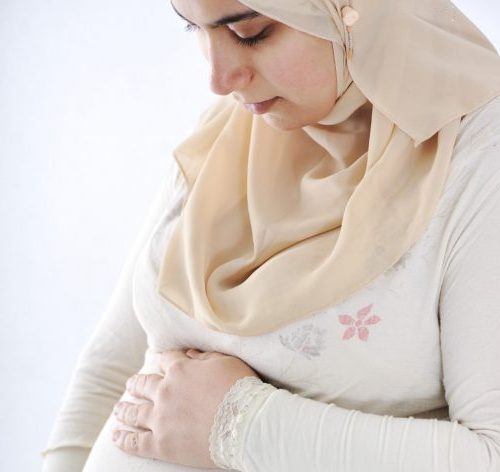Ramadan time brings with itself all the blessings and grace for the entire Muslim community. It is the time of amassing Divine reward and recompense to the fullest by following the path of virtue. Ramadan is considered as the holiest Islamic month, numbered 9 out of its total of 12 months. For the true faithful worldwide, its sanctity is overwhelming owing to its celebration as a festive occasion. In Pakistan, the entire holy month features special preparations and priority arrangements. In the food department alone, specialty menus are crafted and incorporated within special diet plans. This time of the year is not always thought of as a way to lose weight since the spiritual aspect is emphasized more than the health problems Ramadan. Under this scenario, what best would be required by any Muslim is the provision of some crucial tips for Ramadan that lead to a feeling of complete wellbeing.
Health Problems Encountered During Ramadan
This year, 2019, the month of Ramadan is due to fall in the 1st week of May. As years have rolled on, we have observed the holy month’s span to be telling, especially for the Karachiites. Being one of the hottest months, the upcoming Ramadan is going to be the toughest in terms of the scorching weather. Rest assured, the sheer heat of daytime would produce a melting effect over bare-headed individuals under the baking sun. With such intensity of weather comes a plethora of health-related conditions, adversely affecting the followers. The problems associated with fasting are varied and diverse in their degree of affliction, differing from one individual to the other. Through some relevant tips of Ramadan can you spare yourself from the ills of super-heated fasting month.
Health Risks Related To Ramadan: Balanced Approach Can Help A Lot

Source: ranodjo.net
In the section below, we go through various health problems Ramadan that usually confront the fasting faithful, irrespective of the gender.
- Dehydration
People who fast commonly experience this condition, largely because their body does not acquire any fluid from food or directly. For this reason, it is recommended that during Ramadan, Muslims consume plenty of water prior to fasting periods. Proper hydration of the body is mandatory for normal functioning of the physical organs and their processes.
- Stress Level
People who are used to consuming breakfast, lunch, dinner, and snacks in between, fasting periods can pose a major challenge. As a result, fasting may elevate mental stress levels and disrupt the normal sleep cycle. Dehydration, hunger or lack of sleep during a fasting period often lead to headaches and dizziness.
- Heartburn
During fasting periods, abstinence from food leads to an automatic reduction in stomach acid release, which digests food and destroys bacteria. But, smelling food or even thinking about it during Ramadan can excite the brain into getting the stomach release more acid, causing heartburn.
- Hypoglycemia
Ramadan fast stretched over several hours can produce a drastic drop in the blood glucose levels in a diabetic patient. This condition, if suffered for a prolonged period, may lead to detrimental state of utter emergency. Likewise, diabetic individuals need to closely monitor their glucose levels prior to getting into the act on a regular basis.
- Eating Disorders
A certain group of nutritionists believes in the notion that the fasting process may lead to developing bad eating habits. Consequently, such a diet is believed to be ineffective for long-term weight loss. Experts opine that fasting is a mere quick fluid loss, not substantial weight loss.
Controlling Blood Glucose Level In Ramadan: Beating Diabetes With Balanced Intake

Source: GlycoLeap
But Then, There Are Exceptions And Exemptions…
The holy month of Ramadan carries immense importance for the Muslims. According to Islamic injunctions, all healthy adults, either male or female, have been enjoined to observe Ramadan fasting. But, being logical and humane in its approach, it rules out its imperativeness for individuals under certain conditions. The exceptions and exemptions have been listed below. These may be deemed as being extra tips for Ramadan besides the core ones:
- Children under twelve years of age
- The mentally ill or dilapidated
- The elderly who find it too strenuous for them
- Pregnant women
- Lactating (breastfeeding) women
- Women undergoing menstruation
- Intense physical illness
- Traveling people
Exemption To Pregnant Women In Islam: Following The Logical Course

Source: www.dispensaire.ca
Get Hands-On Best Tips For Ramadan This Season
Fasting during the month of Ramadan is borne with a high risk of dehydration as food and drink are limited to before sunrise and after sunset. Moreover, sleep deprivation is a common phenomenon in fasting individuals who usually wake up very early for their Sehri (pre-dawn meal). Healthy fasting is possible if you consume the right foods in the right quantity. Below we have summarized the best fasting hacks you are required to follow in their true spirit:
- Never skip your Sehri (pre-dawn meal)
Breakfast is regarded as being the most essential meal of the day which equates with Ramadan’s Sehri meal. Thus, Sehri is not to be missed at the cost of enjoying uninterrupted sleep during the early pre-sunrise hours. Also, owing to the extended hours of fasting, you are more likely to feel dehydrated and tired during the day. Needless to say, skipping Sehri also leads to overeating during Iftaar, which may cause unhealthy weight gain.
- Avoid overeating during Iftaar (post-dusk meal)
Overeating at Iftaar when it is time to break your fast would harm your body as seriously as missing out your Sehri meal. Ideally, Iftaar should be a well-balanced, nutritious meal rather than a feast. Gluttony and excessive consumption of high-fat foods, specifically, may cause indigestion, constipation and weight gain. That’s why you should opt for some quick energy foods to begin with, the dates being a great option.
Ideal Sehri Meal In Ramadan: Finding Healthy And Enriching Alternatives

Source: Brandsynario
- Fried foods, salty foods, and high-sugar foods are “poisonous”
It is quite common for fasting individuals in our society to help themselves with rich, oily, and sugary eatables at Iftaar time. Although these foods make you control your cravings in the short run, they can turn to fast more difficult the very next day. Besides, intake of fatty and sugary foods gives way to lethargy and weariness. As a health tip, you should be including foods from all the major food groups including fruit and vegetables, rice and cereals, as well as meat beef and poultry. Consuming high fiber foods during Ramadan is also advisable as they let you feel full longer.
- Consume ample quantities of water and other fluids
Drinking an adequate quantity of water between Iftaar and Sehri lessens your risk of dehydration during fasting periods. You should be able to gulp down at least 8 glasses of fluids daily before dawn and after dusk. Fluids include juices, milk, and other beverages, but water is still the best choice.
- Cut down caffeinated beverages
The substance, caffeine, is an essential ingredient found in tea, cola, and coffee. It is known to have a diuretic effect and promotes fluid loss, causing undue thirst during the course of fasting.
Caffeinated Beverages Are Best Avoided In Ramadan: No Health In A Cup!

Source: Steemit
You can take a great step this Ramadan. That is, to adopt good dietary habits via afore-stated tips for Ramadan. We warrant you to feel healthier by the time Holy Ramadan sees us off.







